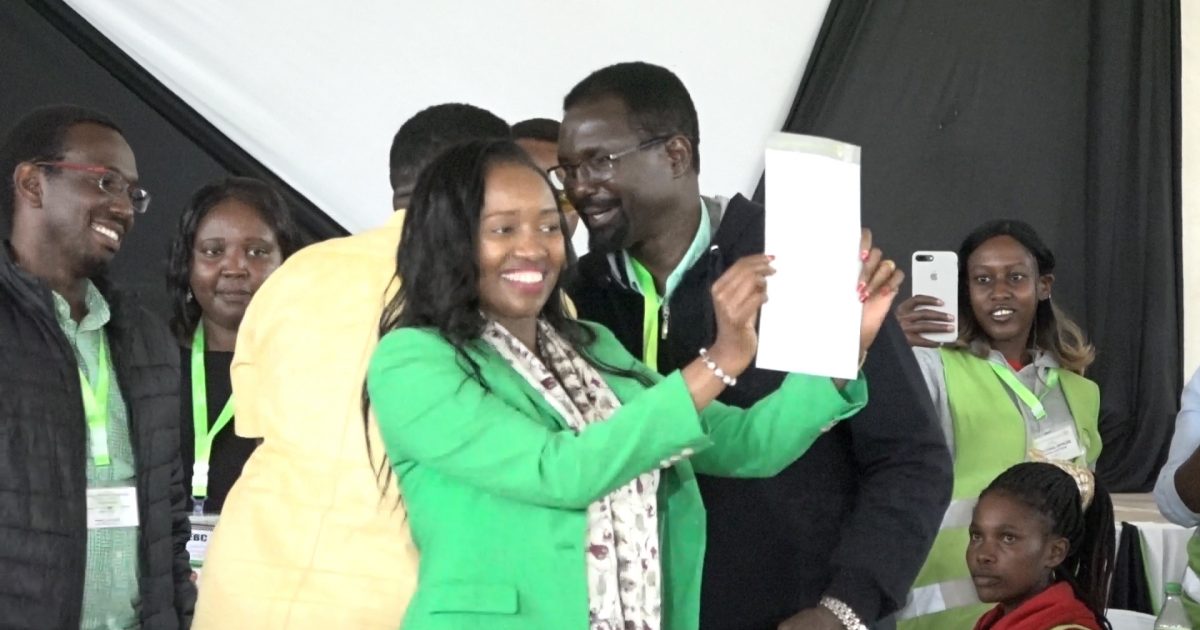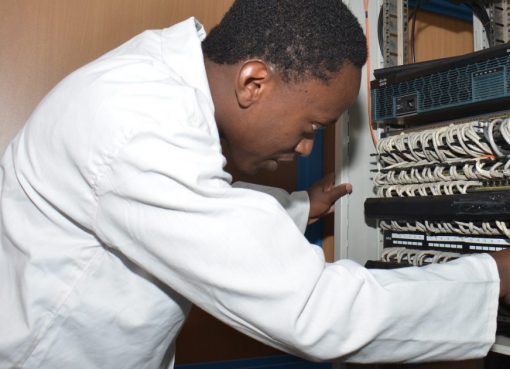The official announcement of election results from Nakuru County by Independent Electoral and Boundaries Commission (IEBC) has heralded the devolved unit as a solid bastion of women leadership in Kenya.
Blazing the trail, outgoing Senator Susan Kihika handed a resounding defeat to Governor Lee Kinyanjui after garnering 440,707 votes against the latter’s 225,623 in what political pundits had touted would be a tightly contested gubernatorial race.
Ms Kihika’s victory completes the top three tier women county leadership after Woman Representative Ms Lizza Chelule successfully defended her seat, while industrialist Ms Tabitha Karanja was elected Senator. All the three victors contested for their respective positions on a United Democratic Alliance Party’s ticket.
Kihika managed to unseat Kinyanjui, who was defending his seat on Jubilee Party ticket on the strength of landmark activities he oversaw including granting of a city charter to Nakuru last year.
In his campaigns, Kinyanjui who first thrust himself in politics as Member of Parliament for then larger Nakuru-Town Constituency between 2007 and 2013 was also banking on his drilling of boreholes in sub-counties, revamping Early Childhood Development Education (ECDE) centres and hiring at least 600 early-learning teachers to win re-election. He had pledged that he would reclaim Nakuru’s industrial status if elected for a second term.
Kihika becomes the county’s third governor after Kinyanjui who assumed office in 2017 after the then incumbent Kinuthia Mbugua was prevailed upon to step down in his favour during Jubilee Party’s nominations.
In 2017 Kinyanjui went ahead and handed a convincing defeat to his closest rival Dr Omondi Ogada of Orange Democratic Movement who he beat by over 150,000 votes in the 2017 General Election.
Kihika has booked her place in annals of history as the first woman governor of Nakuru County. She attained another first when she clinched the senator seat in 2017. Prior to that, she weathered off stiff competition and political under-hands to be elected the first speaker to the Nakuru County Assembly in 2013.
“I take this opportunity to thank the great people of Nakuru who came out in large numbers to vote on August 9. Thank you for giving me a resounding mandate to be the third governor of our great county,” she said after receiving her election certificate from IEBC County Returning Officer Dr Julius Melle.
“It is a huge privilege and honour but it’s also not lost on me how great a responsibility it is. My singular duty will now be, to devote every effort of body, mind and spirit to lead our county to economic prosperity and make it work for all.
“Thank you Nakuru County for your love and support, I promise to never let you down,” pledged the incoming Governor.
The race to succeed Ms Kihika had also attracted Boniface Mwai, an Independent candidate (7,223), Daniel Kimani of Ford Kenya (5,975), Abednego Gathenya (Independent) – 4,680, Thomas Mwangi (Independent) – 10,745, and John Mututho of ODM (36,472).
Others were Koigi Wamwere (Independent) – 6,335, Chrispus Wathimba (Independent) – 2,638 and Michael Wechuli of ANC who scored 2,580 votes.
That women leadership in the county has been entrenched by election of political newbie Ms Karanja as the devolved unit’s senator.
Ms Karanja, the proprietor of Keroche Breweries in Naivasha, previously known to give politics a wide berth save for occasional dalliance with Azimio la Umoja principal Raila Odinga during launch of the company’s products, beat seasoned and well-connected political operatives, to clinch United Democratic Alliance Party’s ticket during nominations.
In the results announced by Dr Melle, Ms Karanja bagged 442,864 votes to beat her closest rival Laurence Karanja of Jubilee who got 163,625 votes.
According to the Senator-elect Nakuru, one of the most cosmopolitan counties in Kenya, has proved that it is a secure ground for women political leaders, and this was the beginning of gender parity that has been an enduring bother in the country.
The unprecedented twist of events marshals into Nakuru a fresh twirl for women’s leadership, with residents expressing optimism that this would change their lives for the better due ‘reduced political shadow boxing’ and rivalries which are ‘dominant features’ of male leadership.
In 2017, voters in Nakuru set the ball rolling by electing three women leaders – MPs Jayne Kihara (Naivasha), Martha Wangare (Gilgil) and Charity Kathambi Chepkwony (Njoro), who were all re-elected in this year’s General Election.
This leadership was strengthened and complemented by the election of Woman Rep, Ms Chelule, who was also announced victor after garnering 382,143 votes against Jubilee’s Agnes Njambi 194,610 votes.
But the one woman leader who went against the grain and took the giant by its horn is Ms Irene Njoki (Jubilee), who defeated outspoken Bahati MP Onesmus Kimani Ngunjiri (UDA). Ms Njoki is one of the only two MPs elected on a Jubilee ticket in the largely UDA dominated county.
There is little doubt that the popularity of Ms Kihika, Ms Karanja, Ms Kihara, Ms Wangare and Ms Chepkwony was fanned by the strong United Democratic Alliance (UDA) wave that has painted the county yellow.
The four incumbent women leaders faced a steep contest against veteran male politicians, but they seem poised to retain their seats, thanks to their superb development agenda that is visible on the ground.
For more than 2.1 million residents of Nakuru, it is the beginning for women’s leadership that will remain highly influential in the social and economic development of the cosmopolitan county.
By Jane Ngugi and Dennis Rasto





